Four-Day Workweeks Exist and Results Prove It's the Only Way to Live
Updated July 19 2018, 6:46 p.m. ET

The concept of a four-day workweek might seem like a far-fetched dream, but one company is proving that it can, well, work.
Perpetual Guardian, a company in New Zealand, tested a four-day workweek over the course of two months and results prove that employees were not only less stressed, but also 24 percent more capable of managing their work-life balance.
The concept is simple: work four, eight-hour days, get paid for five. However, that additional day off allows employees to focus on business while in the office, and home commitments when they're off the clock.
According to Jarrod Haar, professor of human resource management at Auckland University of Technology, job and life satisfaction increased across the board with workers performing better at their jobs and actually enjoying them more.
Plus, there were also increases in stimulation, commitment, and a sense of empowerment at work. A win-win for employer and employee, in our opinion.
Perpetual Guardian's founder Andrew Barnes, who implemented the four-day workweek trial, now plans to take the results to the company's board to get the strategy implemented long term.
“If you can have parents spending more time with their children, how is that a bad thing?” asked Barnes, per The Guardian.
"Are you likely to get fewer mental health issues when you have more time to take care of yourself and your personal interests? Probably... if you have fewer people in the office at any one time, can we make smaller offices?"
Support for the plan is not hard to find — and many shared their own success stories on social media.
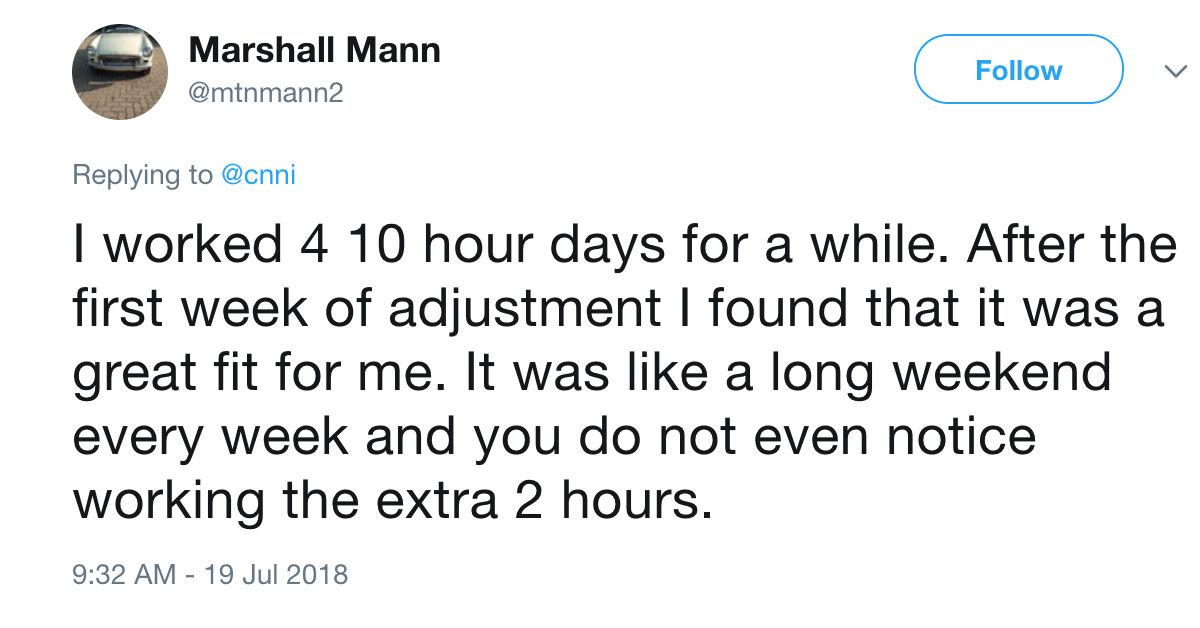
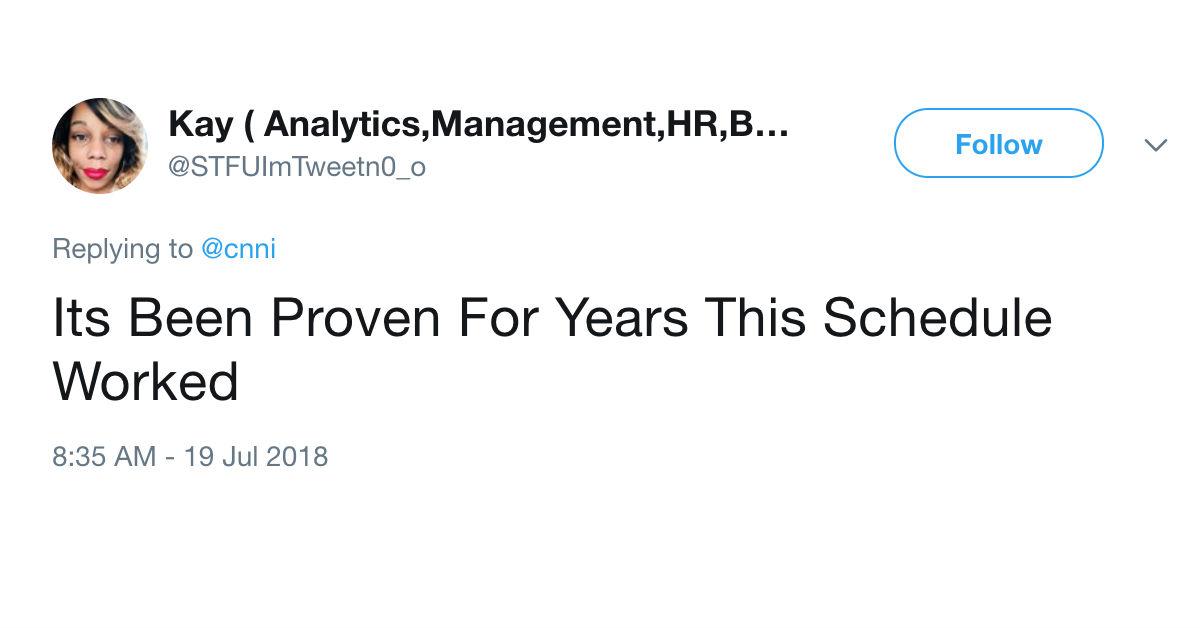
It's just common sense at this point.
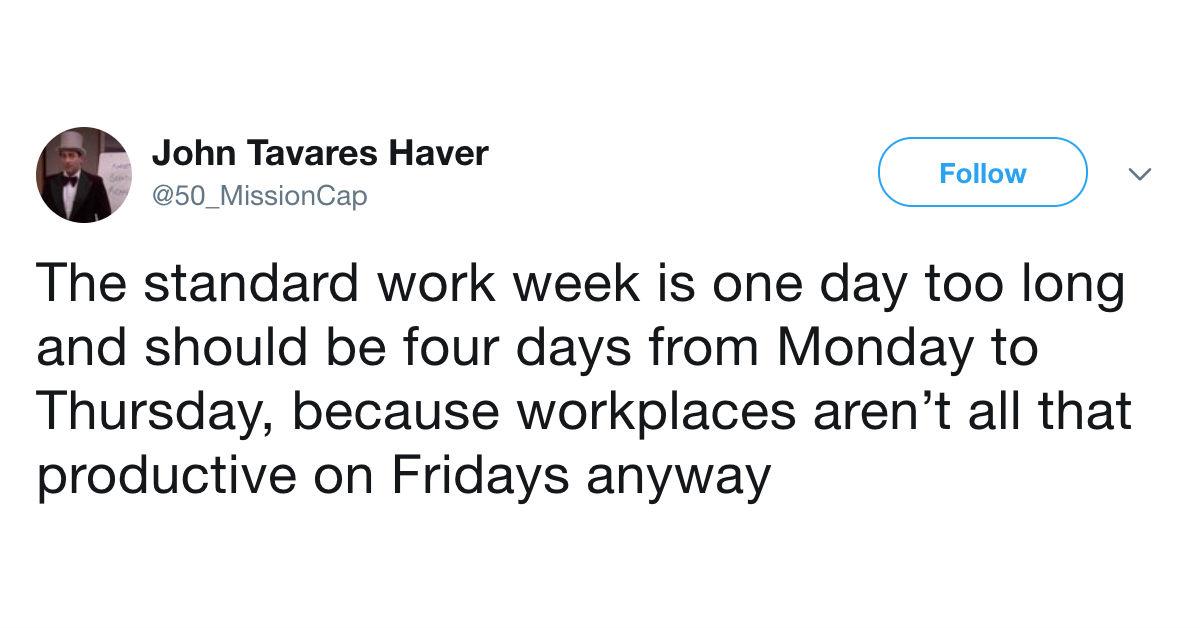
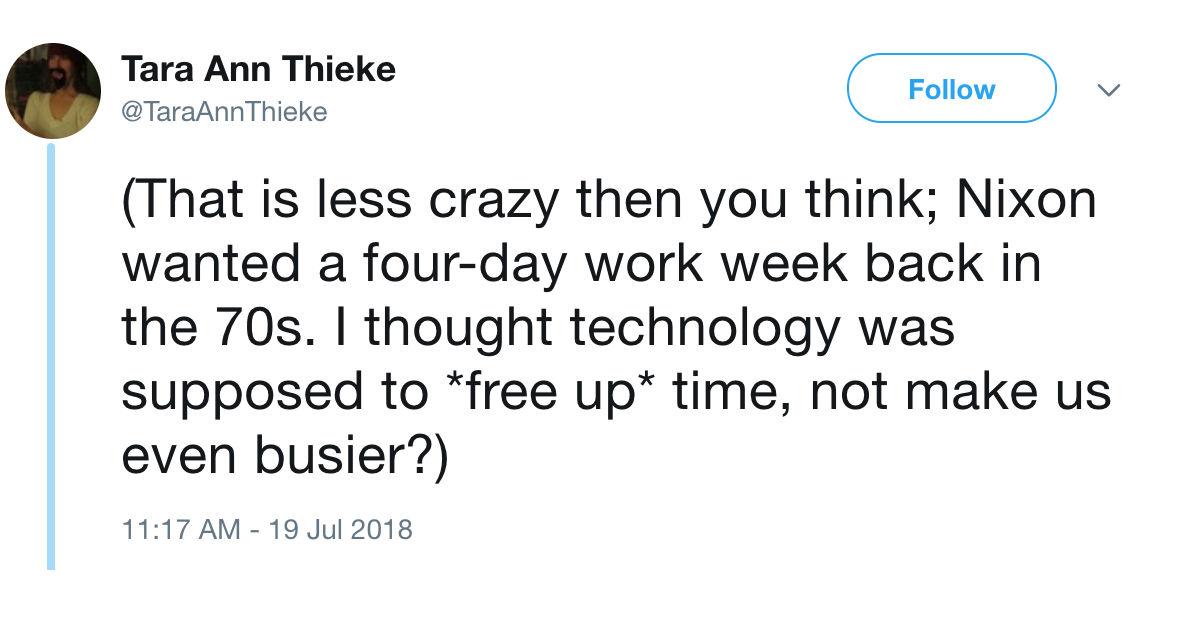
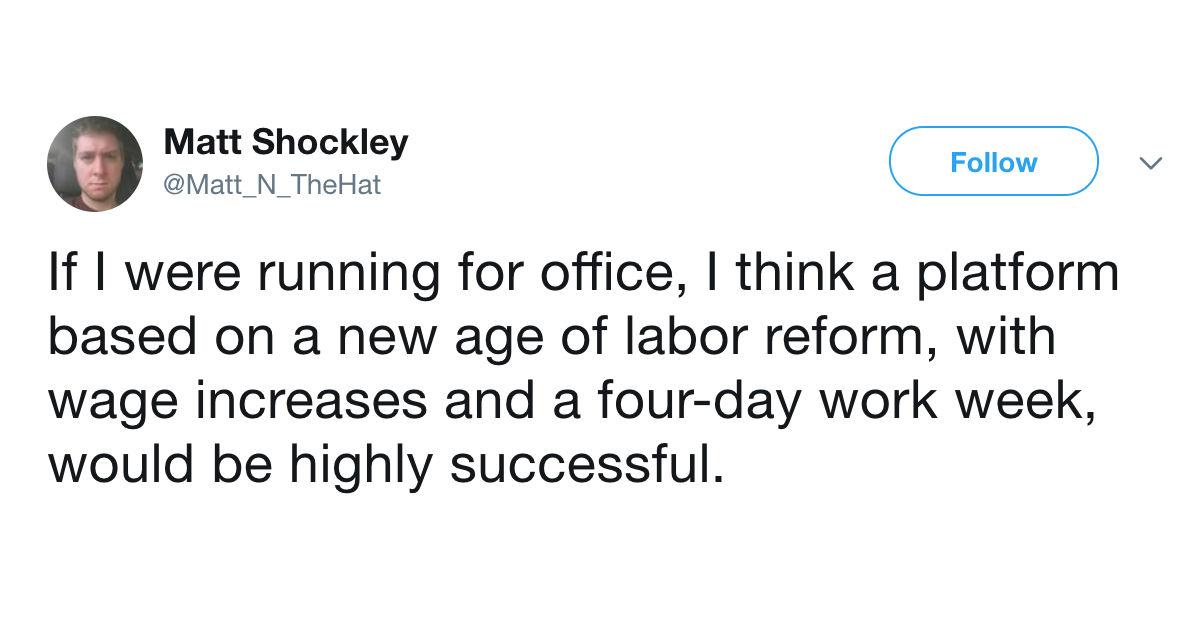
Just make sure to tag your boss on Facebook.